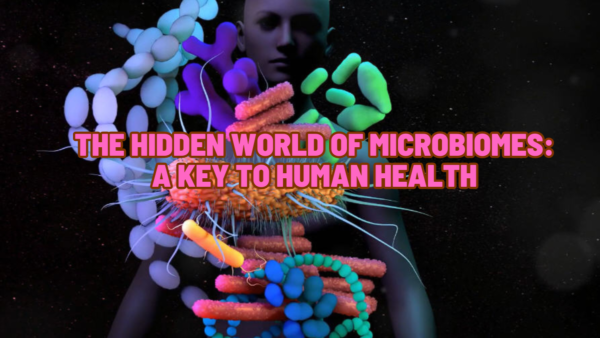The Hidden World of Microbiomes: A Key to Human Health
The human microbiome, a complex ecosystem of bacteria, viruses, fungi, and other microorganisms living in and on our bodies, plays a crucial role in maintaining our health and well-being. This invisible world is most densely populated in our gut but exists throughout our entire body, influencing everything from digestion and immunity to brain function and mental health. The burgeoning field of microbiome research is uncovering how these microscopic communities impact our lives in profound ways.
Q: What is the Human Microbiome?
A: The human microbiome refers to the collection of trillions of microorganisms, or microbiota, that reside in and on the human body. These include bacteria, viruses, fungi, and other microbes that coexist with human cells. The microbiome is involved in numerous vital functions, including digestion, immune response, and even the regulation of mood and behavior.
Q: How Does the Gut Microbiome Affect Digestive Health?
A: The gut microbiome plays a key role in digesting certain foods that the stomach and small intestine have not been able to break down. It helps in the production of some vitamins (like B and K) and plays a crucial role in the immune system. A balanced gut microbiome facilitates efficient digestion, whereas an imbalance can lead to digestive disorders like irritable bowel syndrome (IBS), inflammatory bowel disease (IBD), and obesity.
Q: Can the Microbiome Influence Mental Health?
A: Emerging research suggests a strong connection between the gut microbiome and the brain, often referred to as the “gut-brain axis.” This connection means that the state of our gut microbiome can directly affect our mood, mental health, and even behaviors. Conditions such as depression and anxiety have been linked to altered gut microbiota, highlighting the potential of probiotics as a complementary treatment for some mental health issues.
Q: What are Probiotics and How Do They Benefit the Microbiome?
A: Probiotics are live bacteria and yeasts that are beneficial for health, especially the digestive system. They are often referred to as “good” or “helpful” bacteria because they help keep the gut healthy. Probiotics contribute to the balance of the gut microbiome, supporting digestion, enhancing immune function, and potentially reducing inflammation and the risk of certain diseases.
Q: How Do Antibiotics Affect the Microbiome?
A: Antibiotics are designed to kill harmful bacteria causing infections, but they can also disrupt the delicate balance of the microbiome by eliminating beneficial bacteria. This disruption can lead to reduced microbiota diversity and has been associated with various health issues, including antibiotic-associated diarrhea, increased susceptibility to infections, and potentially long-term impacts on the immune system and metabolism.
Q: How Can We Maintain a Healthy Microbiome?
A: Maintaining a healthy microbiome involves a diet rich in fiber, which promotes the growth of beneficial gut bacteria, and possibly the inclusion of fermented foods that contain probiotics. Avoiding unnecessary antibiotics, managing stress, and getting enough sleep are also key factors. Some individuals may benefit from probiotic supplements, although it’s essential to choose products based on quality and specific health needs.
The exploration of the human microbiome is revealing it to be one of the most fascinating frontiers in science, with the potential to revolutionize our understanding of health and disease. As research advances, it becomes increasingly clear that these microscopic inhabitants play a monumental role in our lives, offering new avenues for disease prevention and treatment. The future of medicine may well depend on our ability to understand and harness the power of the microbiome, turning these tiny organisms into mighty allies in our quest for health.



